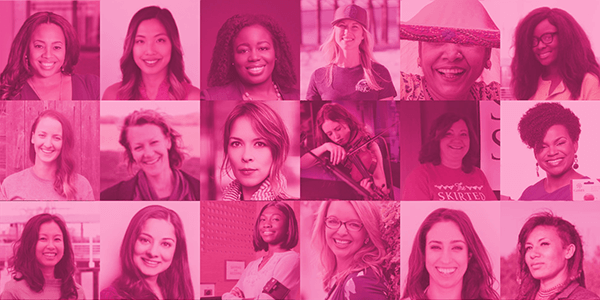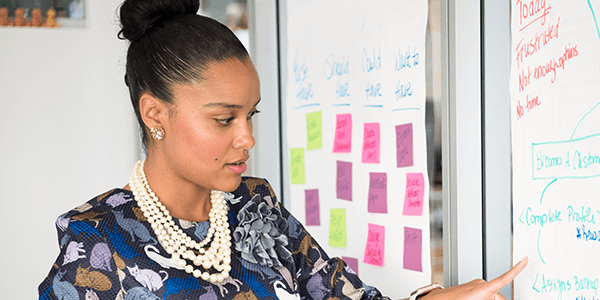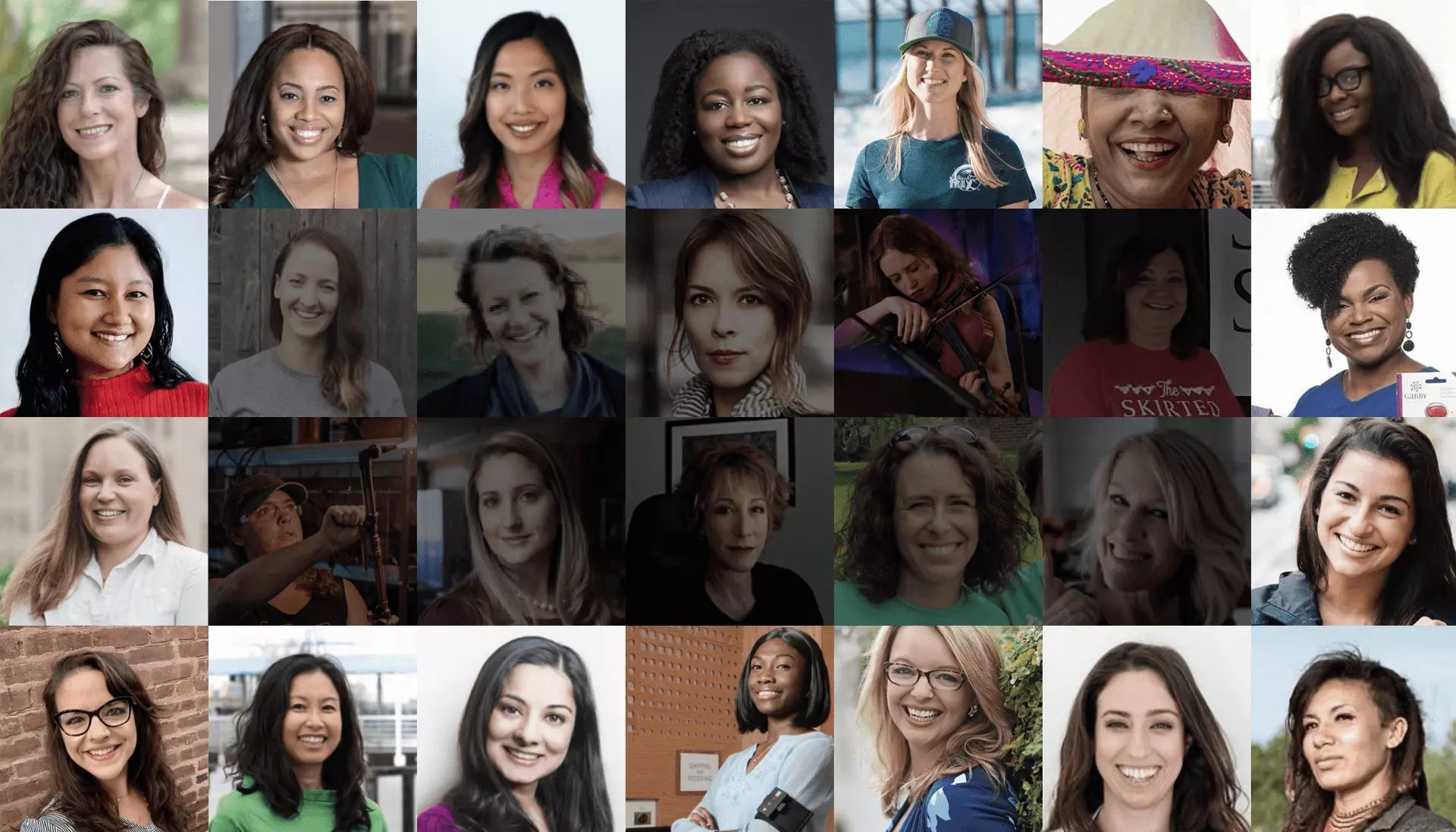

April 29, 2012
April Amber Grant winner is Brown Girl Surf

Brown Girl Surf TM
Woman Entrepreneur:
Farhana Huq
Her Website:
https://www.browngirlsurf.com
We’re excited to announce the WomensNet.net Amber Grant winner for March… Farhana Huq of Oakland, California… Congratulations to Farhana. We were inspired by her story – and we’re sure you’ll be inspired by what she shared with us below.
As a quick heads up, we’re now taking applications for the April WomensNet.net Amber grant. Please be sure to tell us your story if you want to be considered for our women’s business grant.
And now here is our latest grant winner, Farhana Huq.
Video Transcript
WNN: What has inspired you to be self-employed?
FH: For the past 11 years, I started and ran a non-profit called C.E.O. Women (Creating Economic Opportunities for Women). I founded it when I was 24 years old and started it with $1,000. It served over 2,000 low-income immigrant and refugee women by providing them with training, support and access to capital needed to start their own small businesses. I founded it after being inspired by seeing one of my aunts in my family start a salon business in the front room of her home as a single mother of three children with little economic opportunities. I have always believed in women’s economic self-sufficiency and independence as shown through my 11+ years of work supporting female entrepreneurs.
On December 21, 2011 due to the very difficult economy, we closed C.E.O. Women. After helping other women for the past 11 years achieve their dreams, I felt it was time to go after mine. I love to surf. I love to travel. I believe in the empowerment of women and girls around the world. And so on February 15, 2012, I launched Brown Girl Surf TM.
WNN: Wow, that’s a great story… Tell us about Brown Girl Surf TM.
FH: Named in honor of the first female surfers from Polynesia, Brown Girl Surf TM is a journey to find, support and share the stories of trailblazing women and girls from around the globe – starting with the world’s first female surfers: The first girls in the Gaza Strip are taught to surf amongst dropping bombs and flying bullets. A 22-year old journalism student becomes India’s first female surfer. These are the extraordinary stories of Brown Girl Surf TM.
Simultaneously, in California, a woman in her 30’s leaves her career after 11 years to pursue competitive surfing (that’s me!). As Brown Girl Surf’s TM narrator, I share my own crazy journey of trying to go pro in the midst of my search. Supported in part by a Brown Girl Surf TM T-Shirt line and sponsorships, the mission of Brown Girl Surf TM is to elevate the historical significance of these unique women and girls, and to connect them with resources and support (and each other!) so they can continue making waves of change in their communities now and for generations to come.
I have partnered with PhDs, ocean scientists and other friends to help me with documentation of the communities and female trailblazers we meet along the way. I have also partnered with key ocean activists so Brown Girl Surf TM can also serve as an effective platform from which to be active about issues that affect the ocean. You can read more about this on the website. www.browngirlsurf.com
I am focusing on building a strong platform for Brown Girl Surf TM by sharing my journey to find trailblazing women and girls around the world. This includes building a following and a strong online presence which I’ve been focusing on for the past month. At the moment, I am focused on cultivating followers and supporting the journey through Brown Girl Surf TM T-shirt line.
WNN: We read on your website that you learned to surf at age 26 — and that you have traveled to more than 40 countries. There has to be a story there somewhere on how you first learned to surf. Can you share it with us? And what is the favorite country that you’ve visited?
FH: In my initial years in California, I met a good friend who surfed and would always hear him talk about it. I had always wanted to learn. So, at 26 I took my first surf lesson on a trip to Maui, becoming the first woman in my family to really ever attempt a board sport. I remember my father as a reluctant bystander wondering why his daughter was trying surfing at this age when he thought I should probably be getting married and settling down. I’m usually a very good beginner at things, but as the first lesson proved, I was horrible! I felt a little intimidated learning a new sport in which most of the participants were men. I remember my dad giving me a lecture after seeing me struggle to paddle and barely get up on the board. He basically said that surfing was not for me, and that I had to be much more “acrobatic” in order to do it. I think he was also convinced it was a sport for young, short boys only given that the man showing me couldn’t have been more than 5’2″. Even with my years of martial arts and dance training, it was the hardest sport I ever had to learn. I tried a few more lessons over the years but was left feeling pretty discouraged.
A few years later, I happened to see a program on TV about a women’s surf camp. I remember thinking to myself that this was the opportunity I had been waiting for to really try my hand at surfing without having to worry about looking like an ass in front of other male surfers. “THAT is what I am going to do!” I remarked to my mom. So at 30, I took off to Costa Rica for 3 weeks in hopes that I would learn to surf (again). I was still horrible at surfing and afraid of the ocean. I paddled out on my second day. A huge wave came and broke on me and dragged me halfway to shore. My board hit me over the head and left me with a huge bump. I became terrified of the power of the ocean for those weeks but when I came home, something in me could not live without being in it. So I started braving the cold Northern Californian waters and was soon paddling out and catching waves on my own. Before I knew it, I started traveling around the world in search of waves. Something felt so empowering being able to maneuver through the ocean, catch a wave and ride it. Today surfing has become more of a way of life for me. And yes, I still do get bumped on my head from time to time 😉 and still get scared. But part of what makes it amazing to me is the opportunity to face my fears and work through them. It’s a really powerful experience.
As for a favorite country, I absolutely love Fiji for its beautiful people, breathtaking landscape and for the epic surf. I also admire greatly its ability to still hold on to and preserve its culture and land in our age of globalization. I’ve spent some of my happiest days in Fiji and would go back any day in a heartbeat.
WNN: Share with us how you think surfing for women around the world is a means to social and economic change.
FH: I really think the concept of trailblazers as they exist in different societies plays an important role in accelerating social and economic change. Brown Girl Surf TM is a journey focused on finding and studying these trailblazers starting with the world’s first female surfers. I want to see if this theory holds true.
Surfing is emerging as a globalized subculture and there are new surfing communities popping up around the world by the day. This often presents unique opportunities and challenges for females taking up the sport in often male dominated communities. The fact they are doing something so different, and often in cultures where it’s not socially or culturally acceptable for women or girls to be engaging in a sport like this is in itself changing society.
Take Ishita, for instance. She is India’s first female surfer. She is the CEO of her own surf camp and is actually pioneering the way for a future beach and surf culture in her country. She also is playing a key role in educating the local villages on the importance of ocean conservation, potentially altering her community’s relationship to the ocean. Ishita is doing something her foremothers have never attempted before and in doing so, expanding the horizons of what’s possible for women in her culture. Who knows how many other girls will get the opportunity to do this sport because of her, or even be inspired or influenced to go after new dreams. Moreover, the emergence of surfing in new communities might possibly offer economic opportunities for the local population of women and girls to take part in its various sub economies, depending on how that surf culture emerges in that society. But it may also exploit them too.
It’s a fascinating time to follow the emergence of female surfing subcultures. I want to meet these women and girls and see for myself how they are influencing social and economic change. I have partnered with amazing people like Dr. Krista Comer, of Rice University, who will be part of the Brown Girl Surf TM journey. Krista spent ten years of her life studying emerging female surfing communities which culminated in a book called “Surfer Girls in the New World Order,” one of the single most important studies done on women and girl’s surfing (IMHO). We are currently planning our first trip to India to visit Ishita this year.
WNN: Is there any advise you would give to women entrepreneurs who might be struggling with their dreams?
FH: That would depend on what their struggle is I guess. If money is a challenge for you, my advice would be to see how far you can get on your savings first. I’d also suggest researching the web to find sources of capital. There are also all sorts of outstanding resources and platforms to raise money with today like Indiegogo or Kick Starter. You can find capital and resources via non-profits that really work to help women of all backgrounds from low-income women to minority women to women to women with high growth business ideas etc… These can be of tremendous value in helping you work through your struggles and risks as you begin a business. I highly recommend connecting with one of them. I know this first hand because I ran one of them for the past 11 years. Side note: one of my best entrepreneur buddies financed her jewelry company completely on credit cards and loans from family, so be creative.
If it’s lack of time and juggling, I’d strongly advise you to think of your business as a project, and see if you can get a small piece of it up and running first. I don’t always necessarily advocate for a comprehensive business plan until you can get further into your discovery phase and actually get some of your business launched. Things are changing so quickly and the best test to understand your market and your business is to try to get some part of it up and running first. If you can, you’ll be able to get valuable information and data on your market and product or service and can then use that to construct a fuller plan. But that’s just me. Everyone is different and you have to know what will best help you.
If it’s lack of drive, I’d advise you to reconsider your idea. If your idea doesn’t keep you up until odd hours of the night working away, you may want to reconsider it. Passion drives everything in early stage businesses and you need that energy to keep you going when you don’t have the resources at your disposal to accomplish your goals. Passion is a function of many things but often is a function of how interesting something is to you. Sometimes you may know what your passion is but you just don’t know how to shape it into a business. In other instances, you may be struggling to figure out what your passion or calling is. Working with an executive coach that can help you explore this can be very valuable. They will be able to ask you the right questions and give you things to work on that can help you better get in touch with your passions.
Lastly, I’d advise all female entrepreneurs to just keep doing what they are doing if they are passionate about their idea, and to evolve it according to the things they learn along the way. I’ve seen entrepreneurs grow their business from just a single product hobby with no website and no marketing collateral into a web based business with multiple product offerings that supports them financially. It can take time though. So make sure you love what you do and could see yourself doing this for a few years. And also, always have an exit strategy for yourself. You never know what opportunities or life shifts you may experience on your path but if you are a true entrepreneur, chances are you might get bored after some years (or decades) in your business and you might feel the need to give birth again down the line to second or a third enterprise. So try to think about how you would exit your business down the road if you were to run out of money, you lose passion for it, your leadership becomes obsolete or you decide to focus on some other aspect or project in your life.

















